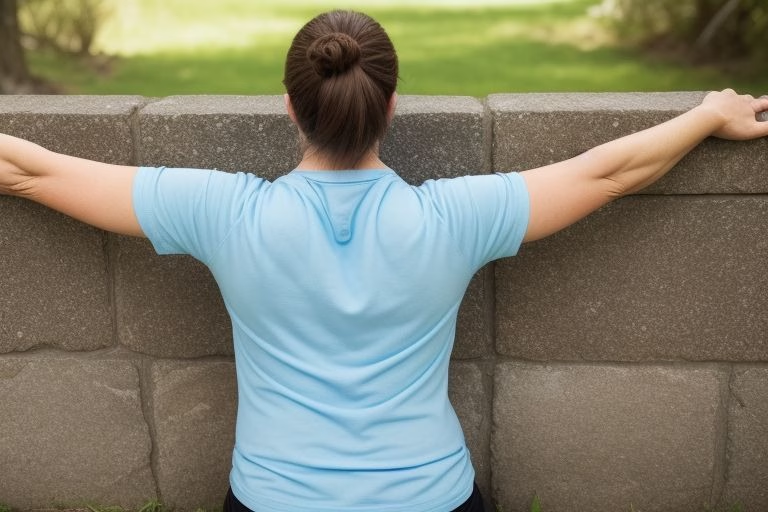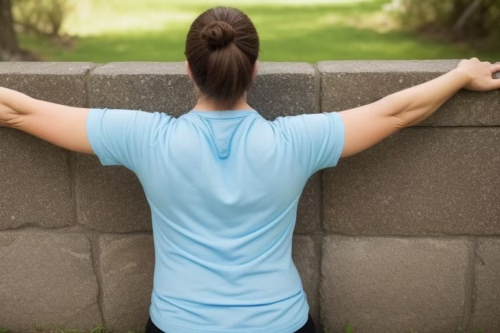
Living with ulcerative colitis back pain can feel like a constant uphill battle. This chronic condition not only affects your gut but often triggers persistent pain in your lower back, hips, or even your entire spine. The discomfort can range from dull and achy to sharp and stabbing—making everyday tasks feel impossible.
But here’s the good news: you don’t have to live like this anymore.

In this guide, we’re diving deep into 7 proven strategies that actually work to relieve ulcerative colitis-related back pain—without medications or side effects. These natural and effective solutions are backed by experts and real-life success stories. Plus, we’ll break it all down in simple English, so you can take action right away.
Let’s get you back to living pain-free!
What is Ulcerative Colitis and Why Does it Cause Back Pain?
Ulcerative colitis (UC) is a type of inflammatory bowel disease (IBD). It causes inflammation and sores in the colon and rectum. While it’s mainly a digestive condition, many people are surprised to learn that it can also lead to back pain.
Here’s why:
-
The chronic inflammation in UC can spread beyond your gut.
-
It can trigger joint pain, muscle stiffness, and spinal discomfort.
-
Some people develop a condition called ankylosing spondylitis—a type of arthritis that affects the spine.
-
Inflammation in the pelvis or sacroiliac joints often radiates pain to the lower back.
So, if you’re feeling that nagging ache or stiffness in your back, it might not be a separate issue—it could be your ulcerative colitis talking to you.
1. Anti-Inflammatory Diet That Works Wonders
What you eat can either fuel your inflammation or fight it. It’s that simple.
Here are some ulcerative colitis-friendly foods that help reduce both gut and back pain:
Best Foods to Include:
-
Oily fish like salmon, sardines, and mackerel (rich in omega-3s)
-
Bone broth – healing and gut-soothing
-
Cooked vegetables – especially squash, carrots, and zucchini
-
White rice and gluten-free oats for gentle carbs
-
Turmeric – a powerful anti-inflammatory spice
-
Blueberries and bananas for antioxidants and prebiotics
Foods to Avoid:
-
Processed meats and high-fat foods
-
Dairy (can trigger inflammation in some people)
-
Gluten – especially during flare-ups
-
Refined sugar and artificial sweeteners
🔗 For more on gut-healing diets, check out this anti-inflammatory food guide.
2. Gentle Stretches and Movement for Lasting Relief
Back pain thrives on inactivity. One of the best things you can do is keep moving gently—especially with stretches that open the hips, lower spine, and pelvis.
Try These Gentle Moves Daily:
-
Cat-Cow Stretch: Improves spinal flexibility
-
Knees-to-Chest Pose: Releases tightness in the lower spine
-
Pelvic Tilts: Strengthens your core and reduces strain on your back
✅ Aim for 10 minutes a day. You’ll start feeling lighter, looser, and less inflamed.
🔗 This yoga for IBD routine is also a great starting point.
3. Heat Therapy: Your New Best Friend
When your back feels stiff or inflamed, applying warmth can bring immediate comfort.
Ways to Use Heat Therapy:
-
Heating pads on the lower back for 15-20 minutes
-
Warm baths with Epsom salts to ease muscle soreness
-
Hot water bottles before bed to relax your joints
The heat boosts blood circulation, relieves spasms, and helps you sleep better—which is crucial for healing.
Pro Tip: Add a few drops of lavender oil in your bath to calm both body and mind.
4. Manage Stress Before It Manages You
Did you know your brain and gut are deeply connected through the gut-brain axis?
That means when you’re stressed, your gut and back pain often flare up together. Managing your stress isn’t just a luxury—it’s a medical necessity if you have ulcerative colitis.
Top Stress-Busting Practices:
-
Deep breathing exercises (like box breathing)
-
Mindfulness meditation – even 5 minutes a day helps
-
Nature walks to reset your nervous system
-
Journaling your feelings instead of bottling them up
🔗 Learn about how stress impacts the gut at Psychology Today.
5. Strengthen Your Core, Support Your Spine
When your core muscles are weak, your spine does extra work. This leads to strain and inflammation—especially in people with ulcerative colitis back pain.
Strengthening your core gives your spine the support system it desperately needs.
Simple Core Exercises for Beginners:
-
Bird-Dog (on all fours)
-
Wall Sits
-
Seated Knee Lifts
-
Bridge Pose
Start slow—just 3 to 5 reps per move, and work your way up. You’ll notice improved posture, less back pressure, and fewer flare-ups.
6. Try Natural Supplements That Reduce Inflammation
Certain supplements can work alongside your UC treatment to naturally reduce inflammation and pain.
Top Supplements for Ulcerative Colitis & Back Pain:
-
Turmeric (Curcumin) – Natural anti-inflammatory powerhouse
-
Omega-3 fish oil – Reduces joint and gut inflammation
-
Vitamin D – Supports immune health and bone strength
-
Magnesium – Helps relax muscles and ease pain
Before starting anything new, talk to your healthcare provider. Not all supplements work for everyone, but these are commonly well-tolerated.
🔗 Check out more on turmeric’s role in pain relief at VeryWellFit.
7. Get Proper Medical Support & Testing
Sometimes, ulcerative colitis back pain is more than just muscle tightness. It could be a sign of:
-
Arthritis of the spine (spondylitis)
-
Sacroiliitis (inflammation where the spine meets the pelvis)
-
Osteoporosis due to long-term inflammation
That’s why it’s essential to get the right tests—like MRIs or bloodwork—to understand what’s really going on.
Speak to a gastroenterologist and rheumatologist to make sure you’re covering all bases.
🔗 This arthritis-related back pain guide offers helpful info.
Common Questions About Ulcerative Colitis and Back Pain
Can UC really cause lower back pain?
Yes, and it’s more common than people think. Chronic inflammation from UC can affect the spine and joints—especially during flare-ups.
Is back pain a sign of a UC flare?
In many cases, yes. Some people experience back pain before or during a flare as the inflammation ramps up in the body.
How long does the back pain last?
It depends. Some people feel relief after a few days, others may have chronic discomfort. Managing your inflammation and lifestyle is key.
Final Thoughts: You Can Live Better Starting Today
Ulcerative colitis back pain doesn’t have to control your life. With the right approach—combining food, movement, mindset, and natural support—you can take real control of your health.
Remember:
-
Listen to your body
-
Keep your gut happy
-
Stay gently active
-
Choose natural over harsh medications whenever possible
Your journey to healing starts with a single step. Choose one of the strategies above and start today. You’ve got this.
Liked this article? Here’s what to read next:
If you found this guide helpful, share it with someone who needs relief. Let’s spread the healing together. 💚



